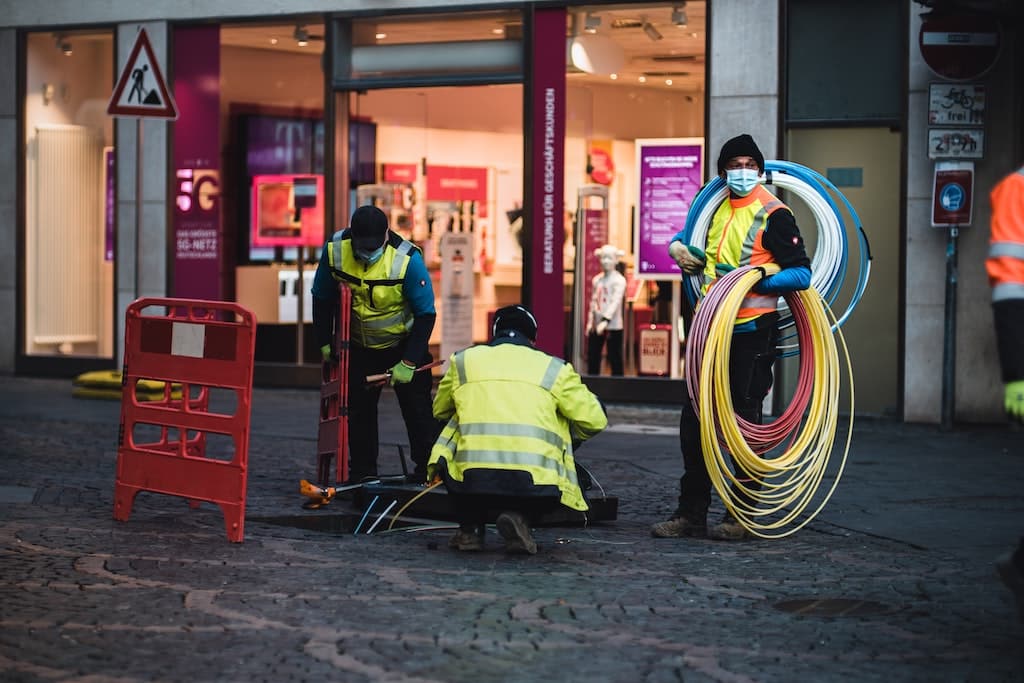This article covers everything you need to know about speed throttling, such as what it is, why it happens, and if there is anything you could do to stop it.
What is speed throttling?
Speed throttling refers to data limits intentionally imposed on your broadband connection by your internet service provider (ISP).
How do I know my internet is being throttled?
Can you tell the difference between slow internet speed and bandwidth throttling? In short, not always!
As data throttling essentially results in slow internet speeds, it is not immediately obvious what may be the cause. One simple trick however, is to run a speed test once using a VPN, and once without. If you see faster speeds whilst you are using the VPN, you can be fairly certain this is the doing of your broadband provider.
If you suspect your broadband might be throttled, you can read our piece on how to use a VPN and run a speed test.
Why is my broadband connection throttled?
There are couple reasons why your ISP may have decided to throttle your internet.
- Exceeding data caps
For one, it is possible that your data usage has surpassed a certain threshold which the provider deems as excessive. If this is the case, your ISP is taking these measures to ensure other users in the area won't be negatively affected.
If you're not sure what your data limits are, we would recommend checking the terms of your contract again, and making sure to read the fine print!
- High traffic
A more common reason for throttled speeds, is general network congestion in your area. What does this mean? If a lot of users in your immediate area are engaging in high broadband usage at the same time, your provider may be imposing restrictions. What constitutes as high usage you might ask? In most instances of speed throttling due to high traffic, your neighbours will simply be streaming their evening shows, gaming or video chatting. In isolation, this would not cause any problems, however compounded across a number of households all at the same time, could cause your provider to regulate network traffic in your general area.
- Forbidden activity
Another possible reason for internet throttling is engaging in any illegal activities online. If this is the case, you should probably close the site you are browsing.
- Paid prioritisation
Finally, another reason your internet connection may be slowed down is due to certain sites or services which have paid the broadband provider for prioritisation privileges. This means a site or streaming service can in some instances pay a provider to have their loading speeds elevated in contrast to other sites.
Generally speaking this is bad practice, but it can happen on occasion.
How can I stop my internet from being throttled?
- Use a VPN
If your provider has singled you or your area out for data throttling, a simple trick is to use a VPN. This essentially hides your location, meaning you can avoid your suppliers localised restrictions.
- Monitor your data limits
If you experience broadband lags very commonly, it may be worth checking your data limits to see if you can avoid hitting the limit going forward. This may help you pinpoint which of your activities online exceeded the data limit. If you find it was something you would only do occasionally, then there is not much to worry about! If you can't avoid it, but might want to change your deal altogether.
You can find your data limits either on your monthly internet bill, or on your online account when logging in. If you are still struggling to find the information, you can always reach out to your ISP's customer service team.
- Check other causes for slow speed
Of course, not all hiccups with your internet speeds will be due to ISP throttling. Before jumping to any conclusions, it is a good idea to see if what else could be causing your broadband to slow down.
Common reasons include, building work on your broadband networks, loose cables or broadband latency. If there is a general outage in your area, you would usually find confirmation of this your ISPs website.
If you are consistently not able to reach the speeds you were promised, we recommend contacting your supplier directly, as you may be able to file an official complaint or claim compensation.
- Switch internet service provider
Finally, when you have exhausted all options to get back up to good speeds with no lag, it might be time to think about switching deals. Often, broadband plans with higher speeds will also have more generous data or even unlimited data caps.
Switching broadband providers further has the benefit getting access to cheaper deals typically reserved for new customers. If you need help comparing internet providers, simply fill in your details on the Switchcraft website.
Compare broadband deals
We find deals from all the top providers and help you switch.
